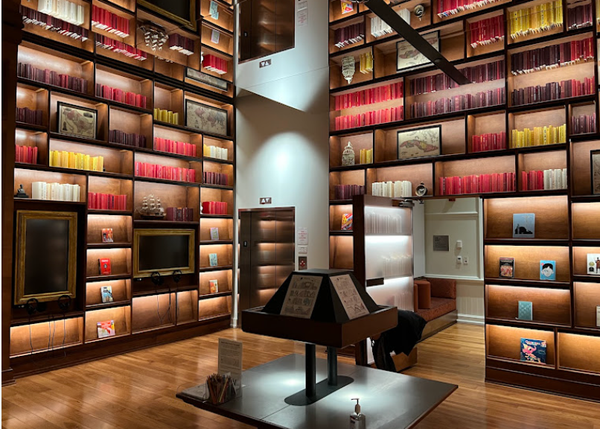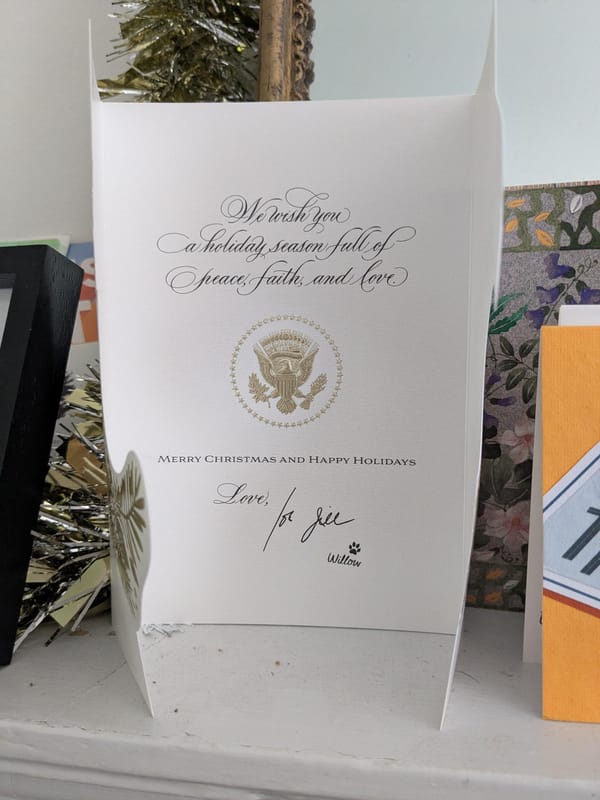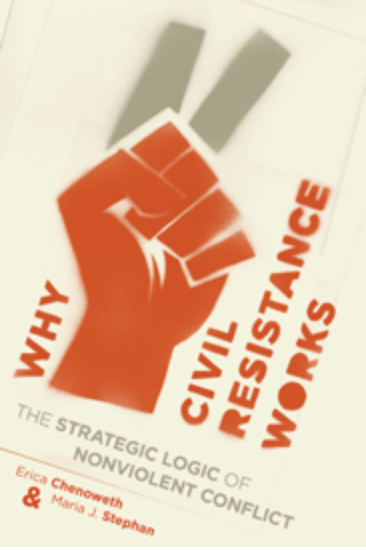The Plan #8: The Three Conditions
A Few Clarifications
Well — maybe not quite. This idea can be a little slippery, and it’s important to have a firm grasp on it before we keep going.
When you first hear about “life satisfaction” it can be easy to think to yourself, “I don’t care about being satisfied, I only care about …” animals, or the environment — your family, or your country, or your soldiers, or your Creator. Something outside of you, something bigger than yourself. And I applaud you for it — and promise that there is nothing about “satisfaction” that stops you from measuring your life that way.
“Satisfaction” can sound like it just means comfort, but every time I use it, I use it to mean something much bigger. There is no reason your life can’t be lived for other people, or other causes. People who value sacrifice, and sacrifice themselves, people who value hard work, and work hard — these people are satisfied. They lived their lives the way they wanted, even though they also lived for the sake of something that wasn’t themselves.
Another way the words can be confusing is that you might hear other people making arguments that talk about “happiness” or “well-being” or “fulfillment” — and because people are often not very precise in how they use these words, they might be talking about the same thing as we are, or they might be talking about something completely different. Even researchers of satisfaction often talk about “happiness,” simply because it’s a more familiar word when talking to a non-academic audience. But whatever you call it, we have to be clear about what we mean. What I’m talking about here — what we’re talking about now — is not just the way you feel about something, but the way you feel about everything.
The Three Conditions
Okay. We’re getting somewhere. Life satisfaction will be our guiding light. We’re not sure where it will take us yet, but we’ve made a huge step forward, and we should be proud. However before we can get too comfortable, you might notice Rayid’s voice in the back of your head. Is this idea really crystal clear? Clear enough to measure? Just — “life satisfaction”? That’s it?
And you would be right. In particular, we haven’t said anything about *who* is satisfied, or when they are satisfied. In other words, our real goal can’t just be “the most satisfaction possible.” We also need to add:
For as many people as possible,
And for as long as possible.
“For as long as possible” is sort of included in “most satisfaction” automatically, because if our actions ended the world, that would obviously not be very satisfying. Still, the time scale on which this happens can be easy to forget about if you don’t write it down, so we’ll write it down. It will show up again later in several very large ways.
The other addition — “For as many people as possible” — is harder. It is a very short sentence, that expresses a terribly complicated idea. Many of the great conflicts of history, and maybe even all of them, have been fights over who deserves to be satisfied. Because this has proven to be such a difficult question for such a long time, we will save it until we’re ready for it, and then wrestle very hard with this very short sentence. For now though, we can include it with confidence, based on an equally short sentence. Maybe some people deserve less, and maybe some people deserve more — but it cannot be the most important problem, if we are not at least thinking about everything, and everyone.
If that’s the case though, why didn’t I just say “everyone” at the beginning? The word “possible” is in every line, and I see it and I wince, because I see how dangerous that one word could be. I see looming decisions about Who, and When, and How much, like a tsunami, maybe miles out to shore now, but building with every moment.
I see the danger of having it, but I also see the impossibility of leaving it out. This is not about magic, this is not about utopia. This is not about something that should be true, but can’t be. This is about what is true. This is about things that might really be possible, and if they are possible, how we make them happen. Some things will satisfy some people, and dissatisfy other people. We must choose. Some day, the universe itself will crumble to cold dust. We will not be here, forever. And so, for accuracy, I put — “possible” — and hate the day that will come when we will have to make choices.
But of course, I wish that I could write
The best life
For everyone
Forever
And will try as hard as I can, to get as close — as possible.
Before we move on, I want to point at this last idea with more energy than usual, because all this talk of objectives, and constraints, and ideal lives can feel very theoretical. It’s true, there is an unavoidable dose of philosophy that is necessary when thinking about the meaning and purpose of a life. However, I want to be as clear as I can: this is not just an exercise. It is not just a game. I say that I intend to find — and solve — the most important problem in the world. And I mean it.
What we have been doing is pouring the philosophical concrete for a strong foundation to this difficult building. The foundation is where that philosophy belongs. But the higher we climb, the more practical, the more actionable, and the more immediate we will become. We have already wrestled with mathematical optimization and deep science, with childhood dreams and a life’s goals. But before we are done, we will have touched neuroscience, and economics, and psychology — people, politics, nations — genocides, floods, war, and death, and the most naked displays of human power. We will look at real things, that happen to real people, and we will shoulder the burden of the decisions they present.
As we struggle to make these decisions with all the wisdom they need, we will stack piece upon piece of the most brilliant thinking, and most selfless acts, that humankind has ever known. To be fully prepared for monuments as large as these, I want to make sure you can see where we are going. I want to make sure you are prepared for it. And to help you prepare, I would like to give you one of the tools that I’ve found most helpful, for myself.
That tool starts with a story.



